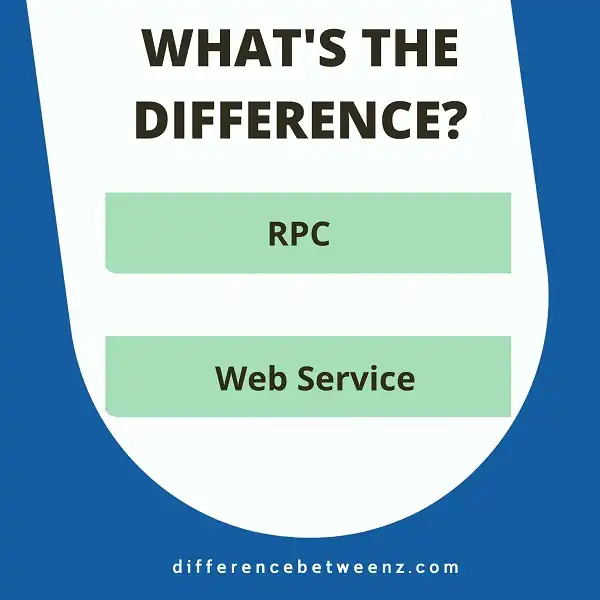What is the difference between RPC and web services? Are they the same thing? In this blog post, we’ll explore the differences between RPC and web services and find out which one is better suited for your needs. We’ll also look at some of the pros and cons of each approach. By the end of this post, you should have a clear understanding of the difference between RPC and web services and be able to decide which approach is best for your next project.
What is RPC?
RPC, or Remote Procedure Call, is a protocol that allows a computer program to request services from a program located in a different computer on a network. RPC enables communication between computers to occur seamlessly as if the programs were executing on the same system. Some common examples of RPC include printing documents remotely and accessing files stored on another computer.
RPC helps improve efficiency by allowing multiple programs to access and share resources without needing to constantly transfer data back and forth between computers. It also helps maintain organization within a network by centralizing certain processes or functions in one location. While RPC can greatly benefit networks, it also introduces potential security risks as it involves sharing information across multiple systems.
What is Web Service?
A Web Service is a software system designed to support interoperable machine-to-machine interaction over a network. It typically uses standardized messaging protocols such as SOAP or REST and may exchange data in formats such as XML or JSON. Web services can be used by other programs or applications, rather than being limited to use within a single program.
This allows for greater flexibility and ease of integration with other systems. Some common examples of web services include weather information, currency conversion, and online payment processing. Web services can also be used internally within an organization, providing a way for different departments or systems to communicate and exchange data with each other.
Difference between RPC and Web Service
When it comes to communication between computers, RPC and Web Services are often used interchangeably. However, there are important distinctions between the two. RPC, or remote procedure call, involves a client sending a request to a server in order to execute a certain procedure or function. The server then carries out the procedure and sends back a response to the client.
RPC is often used within an organization or between known parties, as it relies on predefined interfaces and data formats. Web services, on the other hand, use standardized protocols such as HTTP for communication. They also rely on XML for data exchange and have publicly available interfaces that can be accessed by any party with access to the web service.
Conclusion
RPC and web services are two different technologies that can be used to solve various problems. In this blog post, we’ve looked at the differences between RPC and web services and when it is appropriate to use each technology. We hope you now have a better understanding of how these technologies work and can make an informed decision about which one is best for your needs.


